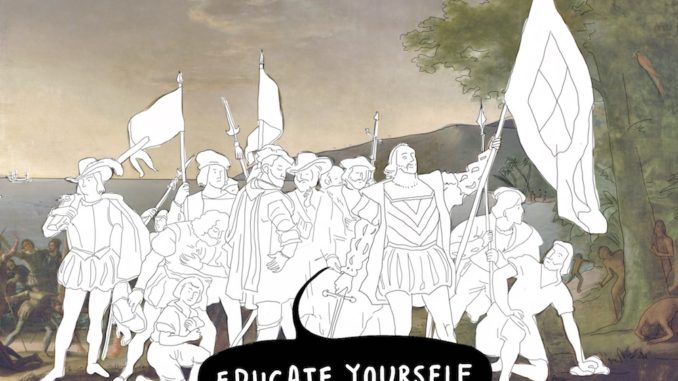
By Can Altunkaynak
Since I have started studying in the US, “getting educated” is one of the expressions that bothers me the most. It is used so often without the awareness of its implications that, after a time, I began to cringe every time I heard it. I do not blame people for using it as that is how they were brought up, but I feel that we should at least try to be critical of what we are saying.
To begin with, education requires an institution to transfer certain bodies of knowledge. By saying “educate yourself,” one refers to a certain agent enforcing a collection of values. If we look at modern education, we see that in many places around the world education shows children the values of government and central society. Being so, the education system inadvertently pressures young students to conform to the general rules of society.
This is problematic in many contexts, because education is used to provide the tools necessary to explore numerous aspects of the world. Yet, not every education system teaches self-expression, authenticity and critical thinking. This leads people to believe there is only one truth, and most of the time it tends to be the one they know: theirs.
There are numerous examples in history. When European nations began exploring the world, they thought the people they saw were inferior and tried to educate them. The U.S. federal government tried to do the same thing with Native Americans. Thus, when someone says “getting educated,” it reminds me profoundly of colonial powers trying to educate others with their own values, making the native culture wither away.
Because education assumes a centralized and standardized system of knowledge, everyone outside of a particular cultural norm is considered ignorant. I felt stuck in this position many times when people expressed extreme surprise towards things I did not know about American culture when I was a freshman. However, when I asked them about Turkish culture, they did not know much; meanwhile, I was speaking their language fluently and knew significantly more about their culture than they knew of mine.
I also feel this reflects larger patterns of how the United States acts as a global actor in the international arena. Good examples include US involvement in Afghanistan and Iraq, as these efforts were based on the belief that people could be educated in a way that would lead them to adopt democratic norms. We all have seen that this was not the case, and efforts to better the lives of people through American values only made the situation worse.
When someone says “getting educated,” I cringe thinking about Iraq, Afghanistan, colonialism and the fixed fallacies people have in their view of the world. I cringe when someone tries to explain to me how my culture is, and what I am, and who I am. I cringe when people try to teach me how to pronounce my own name because that is how it is supposed to be pronounced in English, not even realizing that English spelling is irregular and does not follow logical rules. I cringe when someone expects me to choose between Europe or the Middle East as a Turkish person because European and Middle Eastern culture can never coexist. Why? Because their education says so.
This is why I cringe, because when someone says “getting educated,” they imply I must act in a certain way in accordance with their values, rejecting my own. I think it is better if we all learn from each other, guide each other, explain our perspectives and respect our differences rather than educating people whom our education considers inferior.
Subscribe to the Mossy Log Newsletter
Stay up to date with the goings-on at Lewis & Clark! Get the top stories or your favorite section delivered to your inbox whenever we release a new issue.

Leave a Reply